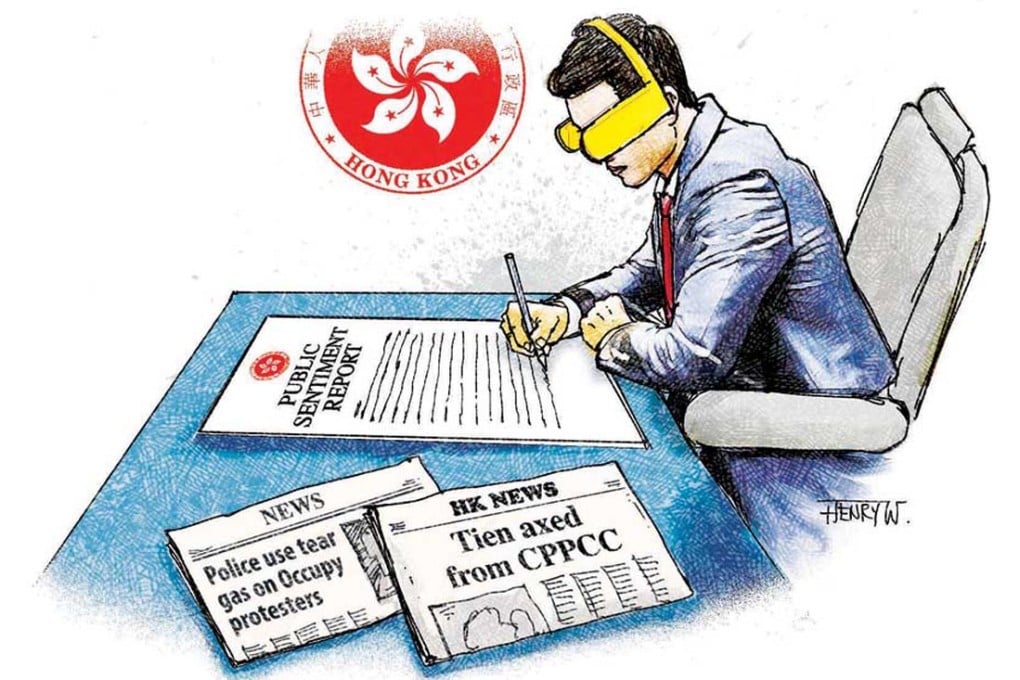Hong Kong government's report on Occupy protests a lost opportunity to build trust
Surya Deva laments the government's report to Beijing on public sentiment surrounding the Occupy protests, which fell short of reflecting people's aspirations for genuine democracy

On Tuesday, the government submitted its report on public sentiment on Beijing's political reform rulings to the State Council's Hong Kong and Macau Affairs Office. It could have been a golden opportunity for the government to regain the trust of pro-democracy protesters and Legislative Council members and engage them in the second round of consultation. This required the government to tell the central authorities that the introduction of genuine universal suffrage need not undermine China's national interests.
But, alas, it did not happen. The document - which includes a main report and a day-by-day account of events in the annex - fails to reflect the level and extent of public sentiment against the highly restrictive and potentially unconstitutional framework proposed by the National People's Congress Standing Committee. Consequently, the second round of consultation might do little to bridge the gap between the two camps.
What is more shocking is that the report even falters on providing an accurate factual narrative of events that unfolded after the Standing Committee's August 31 decision, never mind accomplishing the more challenging task of offering an assessment of the "political situation" in Hong Kong.
The main report downplays or omits key events. For example, a controversial flashpoint during the "umbrella movement" was the police's use of tear gas. Yet, only one sentence in the main report's summary of events is devoted to this.
The report also censors the expulsion of James Tien Pei-chun from the Chinese People's Political Consultative Conference for demanding Chief Executive Leung Chun-ying's resignation. Nor does the main report mention Leung's controversial remark about proportional representation resulting in political domination by Hongkongers earning less than HK$14,000 per month.
These omissions, plus the lack of coherence and analysis, also raise a question: were the authors under political pressure? Taxpayers are owed an explanation.
Even the main report's concluding remarks are flawed, saying it is "the common aspiration of the central authorities, the HKSAR government, and the people of Hong Kong to implement universal suffrage for the chief executive election in 2017 in Hong Kong as scheduled and strictly in accordance with the Basic Law and the relevant interpretation and decisions of the NPC Standing Committee."